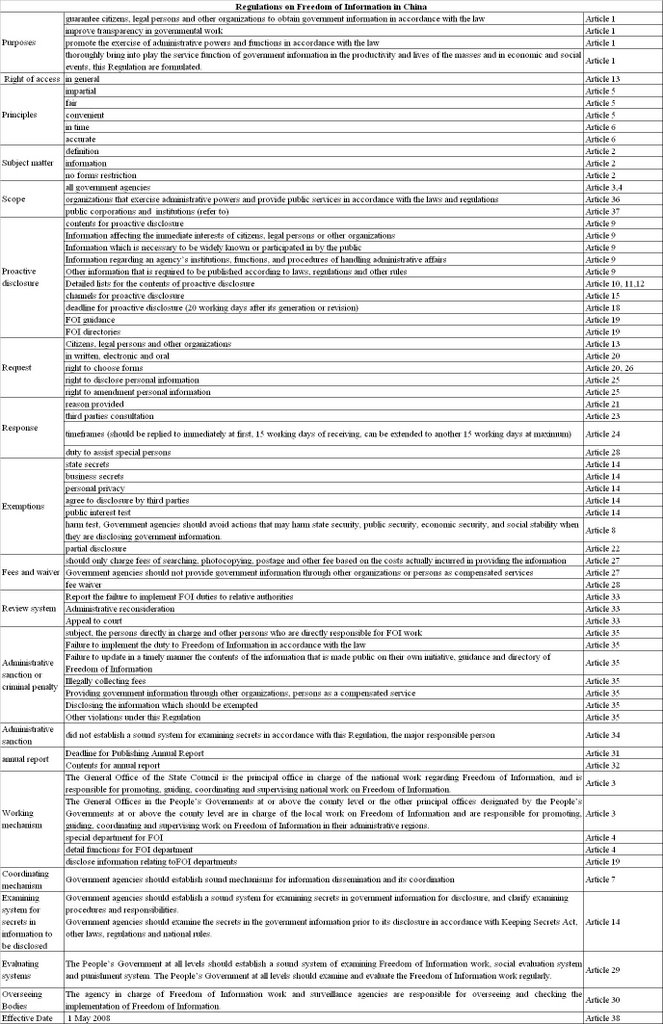An Access Request: A Purpose is Needed
One of international best practices is that anyone should be available to exercise the right to know without any grounds or legal interests. Most FOI laws do not require requesters to provide reasons for their request with the exception of the Italian legislation.[1] Iyer argues that an ideal right to know allows anyone to request information without having to show a reason why they are asking for that.[2] This requirement is slightly unclear under the
[1] Article 22 (1) of the Law on Administrative Procedure 1990 requires that those who request information should have a ‘direct, practical, and actual interest based on a legally regulated case in relation to the document for which access is required’.
[2] Venkat Iyer, Freedom of Information: Principles for legislation (2000) UNPAN
[3] Jamie Horsley,
[4] The General Office of the State Council, Several Suggestions on Implementation of the China’s Freedom of Information Regulations Guobanfa[2008]No.36.
[5] Chen Zhong and Xiao Lu, Shanghai Issued its New FOI Rules (2008) Caijing <>at 1 May 2008.

No comments:
Post a Comment